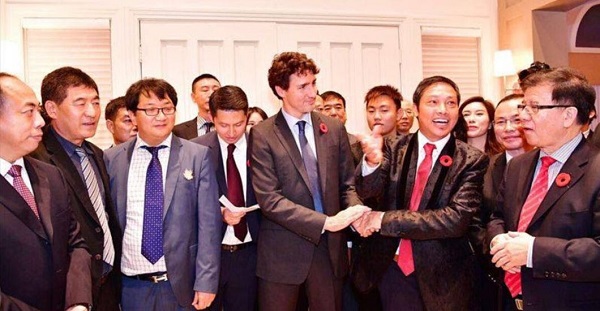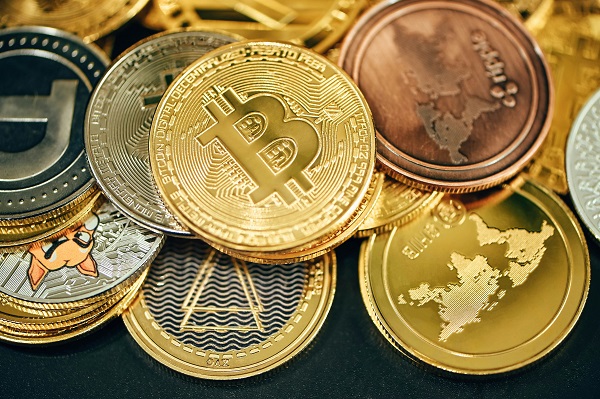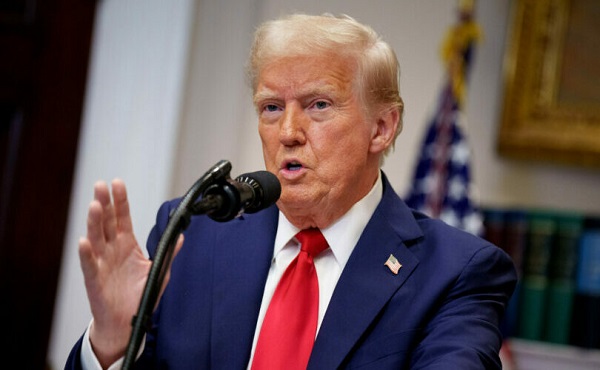espionage
Canada’s inquiry into China’s election meddling begins with officer saying he dismissed warnings
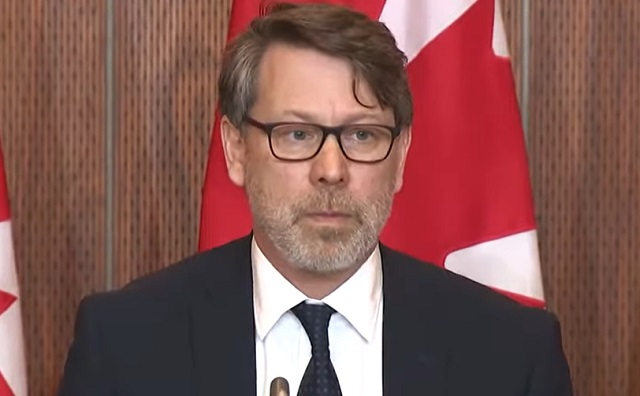
Chief Electoral Officer Stephane Perrault
From LifeSiteNews
Chief Electoral Officer Stéphane Perrault was secretly warned by security agents of irregularities in the 2019 election but said because the ‘party’ controls the nomination process he did not do more to look into it.
The public inquiry into alleged meddling in Canada’s two most recent federal elections by agents of the Chinese Communist Party (CCP) began last week with testimony public from Chief Electoral Officer Stéphane Perrault, who was secretly warned by security agents of irregularities in the 2019 election but said because the “party” controls the nomination process he did not do more to look into it.
“The Party is the only entity that controls the nomination process,” Perrault testified at the Commission last Thursday.
“I would have to inform the Commissioner of Elections and then she would have to make the determination as to what appropriate action would be undertaken, but I don’t have an enforcement role.”
The inquiry is being headed by Justice Marie-Josée Hogue, who had earlier said that she and her lawyers will remain “impartial” and will not be influenced by politics and began on January 29.
In January, Hogue said that she would “uncover the truth whatever it may be.”
“The role of a Commission of Inquiry is to investigate the facts in order to understand what happened in a given situation. Under its mandate, it carries out an objective search of the truth while identifying specific matters, draws conclusions and make recommendations to the government,” she said.
The inquiry last Thursday learned that security agents had secretly warned Perrault of irregularities that took place at a 2019 nomination meeting in a Toronto riding, Don Valley North.
Nando de Luca, Nando Commission counsel for the Conservative Party, asked Perrault to provide more details about the incident, asking him, “Am I correct those concerns related to the Liberal Party nomination contest?”
“I believe I am not authorized to speak beyond what is in this public statement,” Perrault replied.
The tip from the Canadian Security Intelligence Service (CSIS) to Perrault was disclosed by Daniel Sheppard, who is counsel for the Commission.
“You were informed by the CSIS of one fact-specific matter. Is that correct?” Sheppard asked.
“That is correct,” Perrault replied.
- Counsel Sheppard: “My understanding is you were informed by CSIS of a fact situation that could have involved foreign interference related to voting in the nomination contest in the riding of Don Valley North, Ontario. Is that correct?”
- Perrault: “That is correct … ”
- Counsel Sheppard: “You referred a matter to the Officer of the Commissioner of Canada Elections?”
- Perrault: “Correct … ”
- Counsel Sheppard: “Is there anything else you are able to say in a public setting about the information you received from CSIS that we just discussed?”
- Perrault: “No.”
The Foreign Interference Commission, as it is known, “will examine and assess the interference by China, Russia, and other foreign states or non-state actors, including any potential impacts, in order to confirm the integrity of, and any impacts on, the 43rd and 44th general elections (2019 and 2021 elections) at the national and electoral district levels.”
The first set of hearings, or “Stage 1,” will take place from now until April 10 and include a host of witnesses that will include Prime Minister Justin Trudeau and many others who have not been named.
Also set to testify is former Liberal MP Han Dong and former Ontario cabinet minister Michael Chan, both of whom have been victims of alleged CCP interference.
The “Stage 2” part of the public inquiry will take place this fall and will look at the Trudeau government’s ability to both detect and fight foreign interference targeting Canada’s electoral processes.
The hearings are being held at the Library and Archives Canada building in Ottawa.
Chief Electoral Officer claims it was not his job to ‘certify’ integrity of election
During testimony, Perrault claimed that his agency had done a good job, saying, “I believe we have one of the most robust and complete political financing regimes in the world,” noting that this “does not make it perfect.”
He claimed that it was not his job to in effect police elections, saying that as Chief Electoral Officer “I am not called upon to certify the integrity of an election.”
“What I am called upon to do is account for it and provide evidence regarding my administration of the election for others, including participants who may wish to challenge,” he said.
Gib van Ert, counsel for the Conservative MP Michael Chong, who was the target of election interference from agents of the CCP, asked him, “But you’re concerned about the integrity of elections?”
“Of course,” Perrault replied.
“And so when you are considering the integrity, do I have it right that if you felt 330 of the local elections had integrity but eight lacked integrity, you wouldn’t say to yourself, ‘Well, close enough, we’ve come pretty close to 338,’” asked van Ert, adding, “You are having to hold yourself and your agency to a standard of 338?”
“I would report if I know of incidents that affect the integrity of an election,” Perrault said in reply, adding, “If I am aware of factual information that affects that, even if it is one electoral district, I would include that in my report to Parliament.”
Perrault had earlier told MPs that he saw no evidence of CCP interference but admitted that he did not look into this.
Perrault was the first to testify, earlier told MPs in 2022, “There may be offences that are committed that we find out after the fact and there may be investigations that are or are not underway that I would know about but with the information I have, I have no reason to believe the election was not a free and fair election.”
Perrault has said that he has “no specific intelligence or evidence in that regard” whether the 2019 and 2021 federal elections were disrupted by foreign actors.
When it comes to the CCP, many Canadians, especially pro-freedom Chinese Canadians, are concerned considering Trudeau’s past praise for China’s “basic dictatorship” and his labeling of the authoritarian nation as his favorite country other than his own.
The potential meddling in Canada’s elections by agents of the CCP has many Canadians worried as well.
The federal government under Trudeau has been slow in responding to allegations of CCP election meddling after announcing on September 7, 2023, that it would be launching a public inquiry led by Hogue.
The public inquiry comes after Trudeau launched a failed investigation into CCP allegations last year after much delay. That inquiry was not done in the public and was headed by “family friend” and former Governor General David Johnston, whom Trudeau appointed as “independent special rapporteur.”
Johnston quit as “special rapporteur” after a public outcry following his conclusion that there should not be a public inquiry into the matter. Conservative MPs demanded Johnston be replaced over his ties to both China and the Trudeau family.
To date, the evidence that parliamentary committees have uncovered shows that Canadian authorities were aware that agents of the CCP were targeting MPs from opposition parties but decided against taking any action.
Daily Caller
All Epstein Files Are In, Attorney General Reveals What Will Go Public Starting Thursday
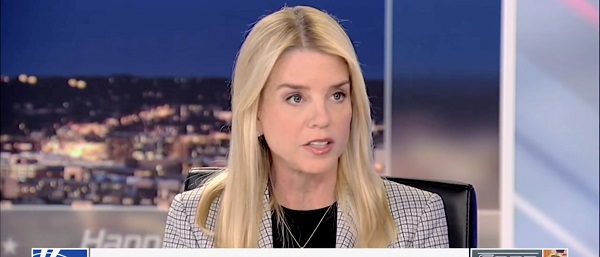

From the Daily Caller News Foundation
By Hailey Gomez
If something’s redacted, you will know the line, and you will know why it’s redacted, the victim’s name, identifying information of a victim.
U.S. Attorney General Pam Bondi said Monday evening on Fox News that the thousands of withheld files on deceased pedophile Jeffrey Epstein are now in the hands of the FBI, adding certain redactions will be made, with an explanation provided for each one.
The Department of Justice released the first phase of “The Epstein Files” — an over 100-page document — on Thursday, but it failed to contain a majority of new information, sparking controversy online. On “Hannity,” Fox’s Sean Hannity addressed the controversy, asking Bondi for her response. She said she had been informed fewer than 24 hours before the release that “there were way more documents that they were supposed to turn over.”
“You’re looking at these documents going, ‘These aren’t all the Epstein files.’ There were flight logs, there were names, victims’ names, and we’re going, ‘Where’s the rest of the stuff?’ That’s what the FBI had turned over to us,” Bondi said. “So a source said, ‘Whoa, all this evidence is sitting in the Southern District of New York.’ So based on that, I gave them the deadline, Friday at 8, a truckload of evidence arrived.”
Dear Readers:
As a nonprofit, we are dependent on the generosity of our readers.
Please consider making a small donation of any amount here.
Thank you!
“It’s now in the possession of the FBI. Kash is going to get me, and himself really, a detailed report as to why all these documents and evidence had been withheld,” Bondi added. “We’re going to go through it, go through it as fast as we can, but go through it very cautiously to protect all the victims of Epstein, because there are a lot of victims.”
Before the release of “Phase One,” Bondi told Fox News last Wednesday that the DOJ would be releasing “some” of the files by Thursday, hoping the public would see “a lot of flight logs, a lot of names, a lot of information.” However, the DOJ and Trump administration faced pushback online after conservative influencers obtained a binder labeled “The Epstein Files: Phase 1.” Some of those influencers were seen smiling and holding it up outside the West Wing.
WATCH:
Hannity pressed Bondi about additional potential redactions in the files.
“National security, some grand jury information, which is always going to be confidential, but we’ll see. Let’s look through them as fast as we can. Get it out to the American people, because the American people have a right to know,” Bondi said. “Not only on that, but on Kennedy, on Martin Luther King, on all of these cases that the Biden administration has just sat on for all these years.”
“It’s really — it’s not sad. It’s infuriating that these people thought that they could sit on this information, but they can’t,” Bondi said. “And when we redact things, Sean, what we’re going to do is not just pull pages out like they used to do. If something’s redacted, you will know the line, and you will know why it’s redacted, the victim’s name, identifying information of a victim.”
Epstein was arrested and charged in 2019 with sex trafficking, only later to be found dead in his New York Metropolitan Correctional Center cell a month after his arrest. Since his death, Republicans, including Tennessee Sen. Marsha Blackburn, have called for the full, unredacted records of Epstein to be released to the public, which includes his infamous flight log.
After the release of phase one, Bondi requested that the FBI deliver the remaining documents to the DOJ by Friday at 8 a.m., tasking newly confirmed FBI Director Kash Patel with investigating “why the request for all documents was not followed.”
“We believe in transparency, and America has the right to know. The Biden administration sat on these documents. No one did anything with them. Why were they sitting in the Southern District of New York? I want a full report on that,” Bondi said.
“Sadly, these people don’t believe in transparency, but I think more, unfortunately, I think a lot of them don’t believe in honesty,” Bondi added. “It’s a new day. It’s a new administration, and everything’s going to come out to the public. The public has a right to know. Americans have a right to know.”
Business
Trump and fentanyl—what Canada should do next
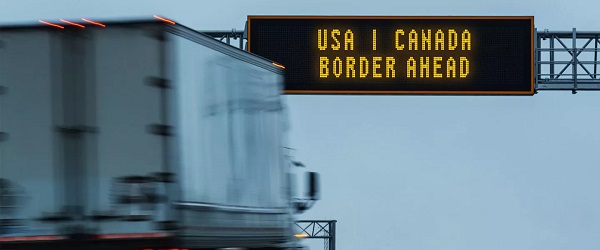
From the Fraser Institute
During the Superbowl, Doug Ford ran a campaign ad about fearlessly protecting Ontario workers against Trump. I suppose it’s effective as election theatre; it’s intended to make Ontarians feel lucky we’ve got a tough leader like Ford standing up to the Bad Orange Man. But my reaction was that Ford is lucky to have the Bad Orange Man creating a distraction so he doesn’t have to talk about Ontario’s high taxes, declining investment, stagnant real wages, lengthening health-care wait times and all the other problems that have gotten worse on his watch.
President Trump’s obnoxious and erratic rhetoric also seems to have put his own advisors on the defensive. Peter Navarro, Kevin Hassett and Howard Lutnick have taken pains to clarify that what we are dealing with is a “drug war not a trade war.” This is confusing since many sources say that Canada is responsible for less than one per cent of fentanyl entering the United States. But if we are going to de-escalate matters and resolve the dispute, we should start by trying to understand why they think we’re the problem.
Suppose in 2024 Trump and his team had asked for a Homeland Security briefing on fentanyl. What would they have learned? They already knew about Mexico. But they would also have learned that while Canada doesn’t rival Mexico for the volume of pills being sent into the U.S., we have become a transnational money laundering hub that keeps the Chinese and Mexican drug cartels in business. And we have ignored previous U.S. demands to deal with the problem.
Over a decade ago, Vancouver-based investigative journalist Sam Cooper unearthed shocking details of how Asian drug cartels backed by the Chinese Communist Party turned British Columbia’s casinos into billion-dollar money laundering operations, then scaled up from there through illicit real estate schemes in Vancouver and Toronto. This eventually triggered the 2022 Cullen Commission, which concluded, bluntly, that a massive amount of drug money was being laundered in B.C., that “the federal anti–money laundering [AML] regime is not effective,” that the RCMP had shut down what little AML capacity it had in 2012 just as the problem was exploding in scale, and that government officials have long known about the problem but ignored it.
In 2023 the Biden State Department under Anthony Blinken told Canada our fentanyl and money laundering control efforts were inadequate. Since then Canada’s border security forces have been shown to be so compromised and corrupt that U.S. intelligence agencies sidelined us and stopped sharing information. The corruption went to the top. A year ago Cameron Ortis, the former head of domestic intelligence at the RCMP, was sentenced to 14 years in prison after being convicted of selling top secret U.S. intelligence to money launderers tied to drugs and terrorism to help them avoid capture.
In September 2024 the Biden Justice Department hit the Toronto-Dominion Bank with a $3 billion fine for facilitating $670 million in money laundering for groups tied to transnational drug trafficking and terrorism. Then-attorney general Merrick Garland said “TD Bank created an environment that allowed financial crime to flourish. By making its services convenient for criminals, it became one.”
Imagine the outcry if Trump had called one of our chartered banks a criminal organization.
We are making some progress in cleaning up the mess, but in the process learning that we are now a major fentanyl manufacturer. In October the RCMP raided massive fentanyl factories in B.C. and Alberta. Unfortunately there remain many gaps in our enforcement capabilities. For instance, the RCMP, which is responsible for border patrols between ports of entry, has admitted it has no airborne surveillance operations after 4 p.m. on weekdays or on weekends.
The fact that the prime minister’s promise of a new $1.3-billion border security and anti-drug plan convinced Trump to suspend the tariff threat indicates that the fentanyl angle wasn’t entirely a pretext. And we should have done these things sooner, even if Trump hadn’t made it an issue. We can only hope Ottawa now follows through on its promises. I fear, though, that if Ford’s Captain Canada act proves a hit with voters, the Liberals may distract voters with a flag-waving campaign against the Bad Orange Man rather than confront the deep economic problems we have imposed on ourselves.
A trade dispute appears inevitable now that Trump has signaled the 25 percent tariffs are back on. The problem is knowing whom to listen to since Trump is openly contradicting his own economic team. Trump’s top trade advisor, Peter Navarro, has written that the U.S. needs to pursue “reciprocity,” which he defines as other countries not charging tariffs on U.S. imports any higher than the U.S. charges. In the Americans’ view, U.S. trade barriers are very low and everyone else’s should be, too—a stance completely at odds with Trump’s most recent moves.
Whichever way this plays out Canada has no choice but to go all-in on lowering the cost of doing business here, especially in trade-exposed sectors such as steel, autos, manufacturing and technology. That starts with cutting taxes including carbon-pricing and rolling back our costly net-zero anti-energy regulatory regime. In the coming election campaign, that’s the agenda we need to see spelled out.
How much easier it will be instead for Canadian politicians to play the populist hero with vague anti-Trump posturing. But that would be poor substitute for a long overdue pro-Canadian economic growth agenda.
-
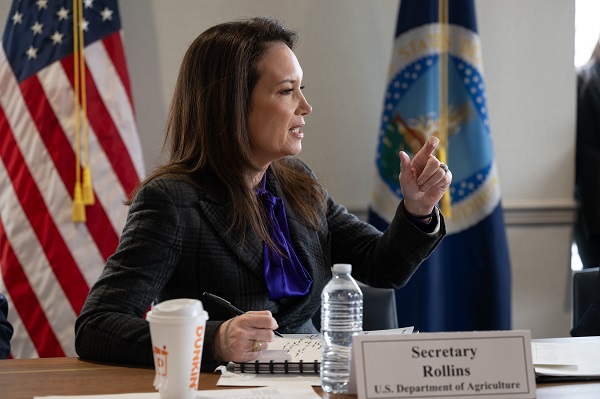
 Business1 day ago
Business1 day ago“The insanity is ending”: USDA cancels $600k grant to study transgender men’s menstruation
-
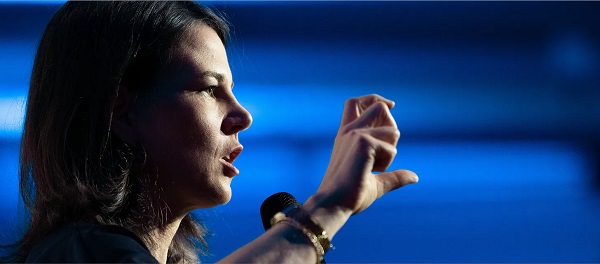
 International10 hours ago
International10 hours agoIs Russia at War With Ukraine, or With the West?
-
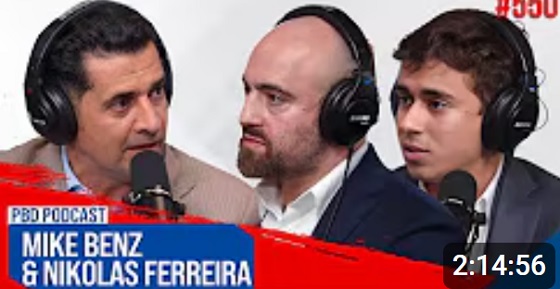
 Censorship Industrial Complex24 hours ago
Censorship Industrial Complex24 hours agoHow America is interfering in Brazil and why that matters everywhere. An information drop about USAID
-
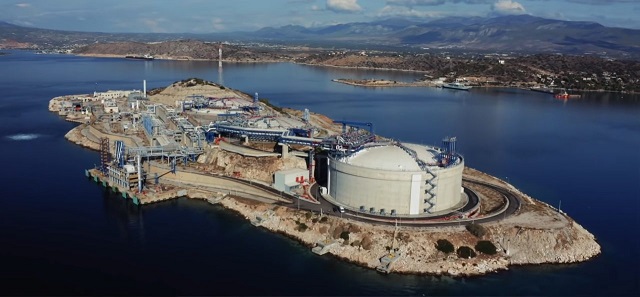
 Daily Caller1 day ago
Daily Caller1 day agoBiden’s Dumb LNG Pause Has Rightfully Met Its End
-
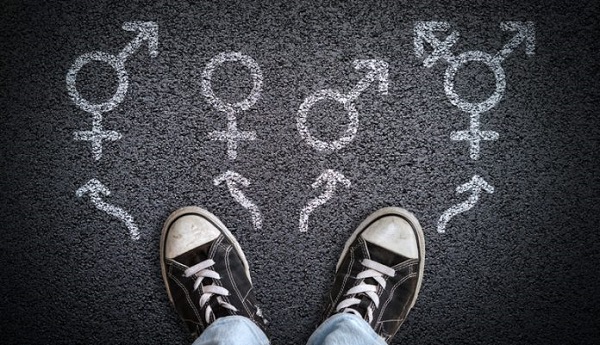
 Business16 hours ago
Business16 hours agoReport: $128 million in federal grants spent on gender ideology
-
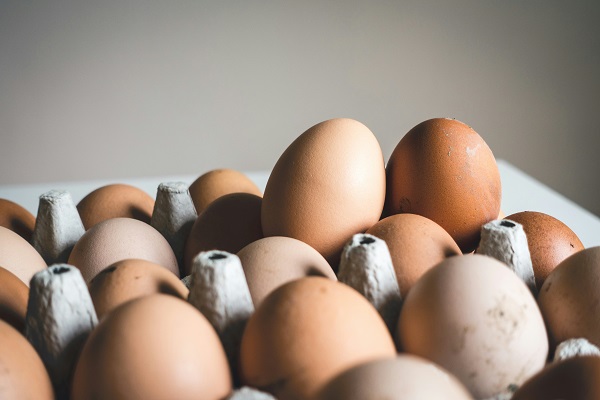
 Agriculture1 day ago
Agriculture1 day agoUSDA reveals plan to combat surging egg prices
-

 COVID-191 day ago
COVID-191 day agoCovid Response at Five Years: Conclusion
-
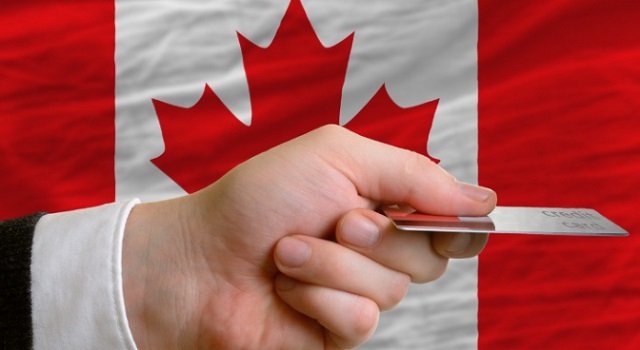
 Business1 day ago
Business1 day agoWe’re paying the bills, why shouldn’t we have a say?
